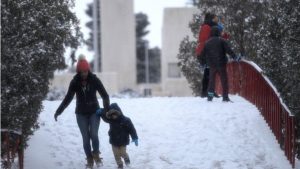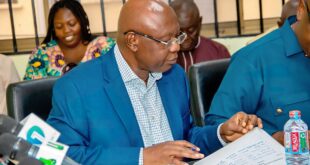A winter storm in the US has brought deadly freezing winds, ice and snow to many regions that rarely see such frigid conditions.
In Texas, a surge in demand for electricity has led to widespread power cuts. The state is bracing for another icy storm later on Tuesday.
The National Weather Service (NWS) said more than 150 million Americans were now under winter storm warnings.
At least 11 deaths have been blamed on the widespread storm.
Deaths have been reported in Tennessee, Texas, Kentucky and Louisiana.
In North Carolina, a tornado spawned by the same storm left three dead early on Tuesday morning.
The freezing storm even reached northern parts of Mexico where more than four million homes and businesses lost power early on Monday.
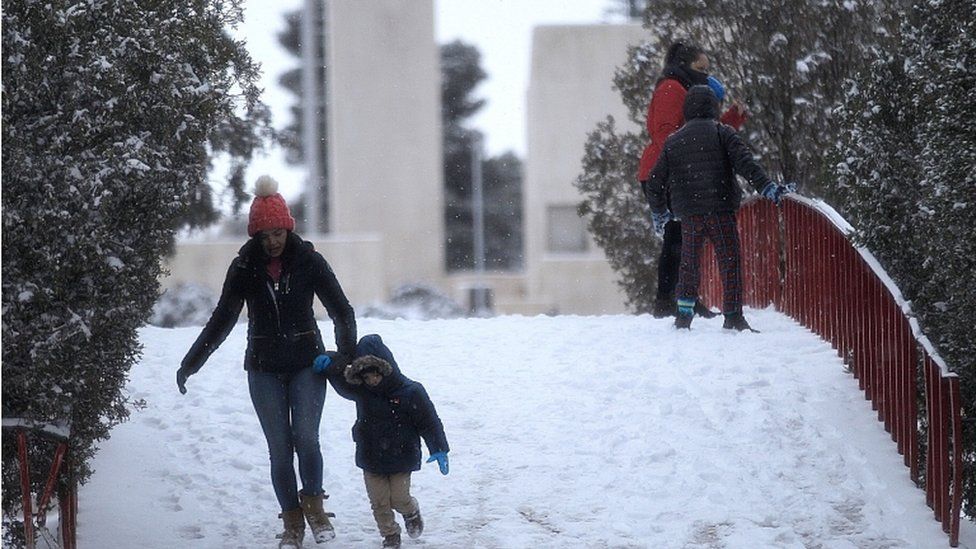 IMAGE COPYRIGHTEPA
IMAGE COPYRIGHTEPAWhat’s happening in Texas?
US President Joe Biden has approved a state of emergency in Texas, which has seen some of its coldest temperatures in more than 30 years – some areas hit 0F (-18C) on Sunday.
The high demand for electricity in the state has caused the power grid to fail. Rolling blackouts have been imposed in some areas to conserve power for hospitals, police and fire stations, leaving over 4.3 million people without electricity.
The crisis was worsened when nearly half the state’s wind power generation was knocked out by the storm on Sunday. Wind power is the state’s second-largest source of electricity.
Icy roads have also led to a spate of traffic accidents and people have been advised to avoid travel where possible.
In Houston, nearly 120 road crashes were reported on Sunday alone. A pile-up on a major highway near Oklahoma City during a snowstorm on Sunday left several lorries on fire.
The George Bush Intercontinental Airport in Houston and the city’s Hobby Airport were both closed until at least Tuesday afternoon.
Travellers in several states were warned that flights could be delayed or cancelled.
Texas Governor Gregg Abbott has urged “all Texans to remain vigilant against the extremely harsh weather”.
How are Texas homes and businesses affected?
Homes in Texas are not normally insulated for cold weather, meaning that indoor temperatures in homes quickly dropped to freezing after heat systems failed. Frozen pipes also burst, despite attempts by homeowner to insulate them from the cold using blankets.
In Houston, authorities say two family members died from suspected carbon monoxide poisoning after they ran their car in an enclosed garage to keep warm.
In Fort Worth, members of another family were taken to hospital in a critical condition for suspected carbon monoxide poisoning.
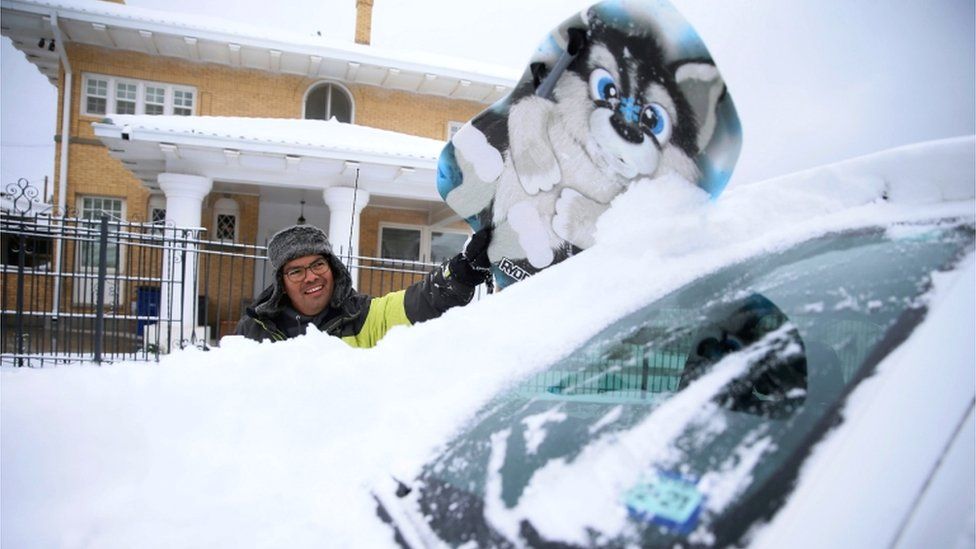 IMAGE COPYRIGHTREUTERS
IMAGE COPYRIGHTREUTERSThe Houston Chronicle was unable to print its daily newspaper due to power cuts. In a note to readers, the paper said that they had still been able to print an edition in 2017 during Hurricane Harvey, which left 75 dead.
The city of Abilene, home to about 125,000 residents, shut off water services after all of the city’s treatment plants lost power.
A medical facility in Houston where over 8,000 coronavirus vaccine doses were being kept lost power, forcing officials to scatter the doses to other facilities before they spoiled.
Temperatures in the city of Dallas have been colder than in Anchorage, Alaska, CBS News reported.
The NWS said unusual meteorological conditions had allowed an “Arctic outbreak” that originated just above the US-Canada border to spill out into and across the US.
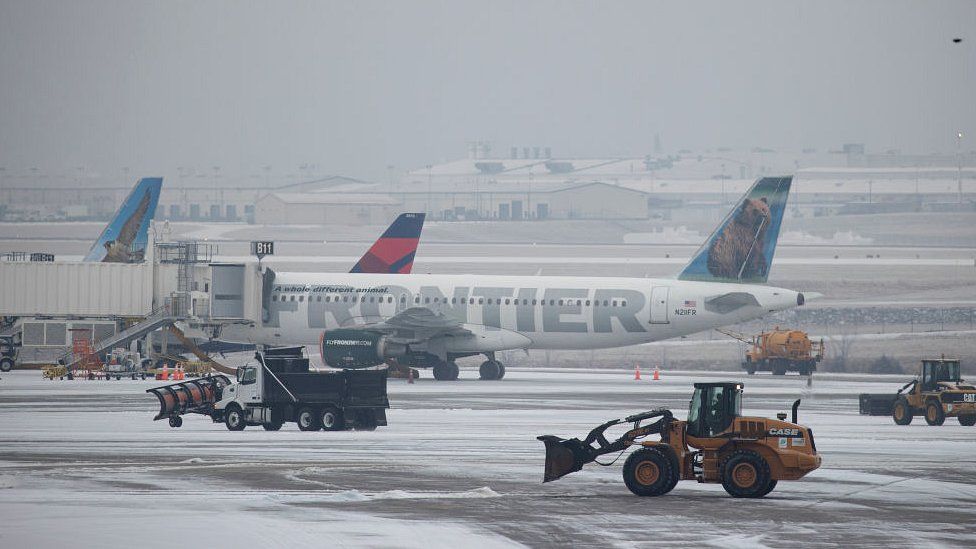 IMAGE COPYRIGHTGETTY IMAGES
IMAGE COPYRIGHTGETTY IMAGESWhat about across the US?
“Over 150 million Americans are currently under winter storm warnings, ice storm warnings, winter storm watches, or winter weather advisories as impactful winter weather continues from coast to coast,” the NWS said in a statement.
“Hundreds of daily low maximum and minimum temperatures have been/will be broken during this prolonged ‘polar plunge’, with some February and even all-time low temperature records in jeopardy.”
On Tuesday, the National Weather Service reported that over 73% of the US is currently covered by snow.
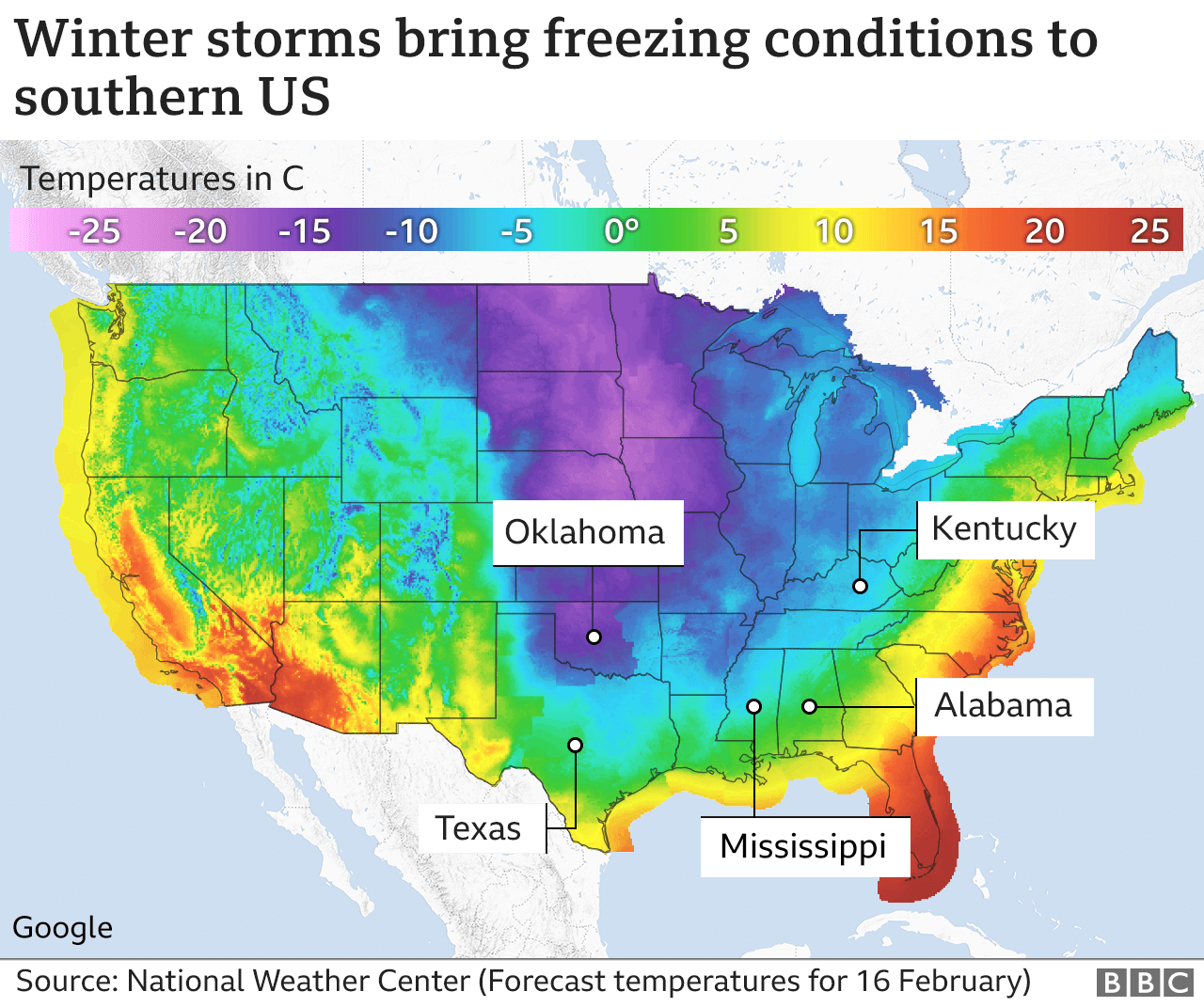

Up to 12in (30cm) of snow are expected across parts of the southern Plains – the large area that spans parts of Texas, Oklahoma and Kansas – according to NWS meteorologist Marc Chenard.
“Typically, we just don’t have quite this much cold air in place that far south,” he said.
In Louisiana, some local authorities have imposed curfews to keep people off the icy roads. The state is also suffering power cuts and traffic disruption.
 Home Of Ghana News Ghana News, Entertainment And More
Home Of Ghana News Ghana News, Entertainment And More
